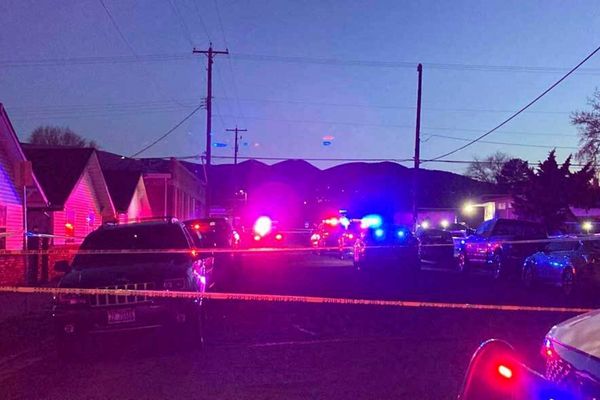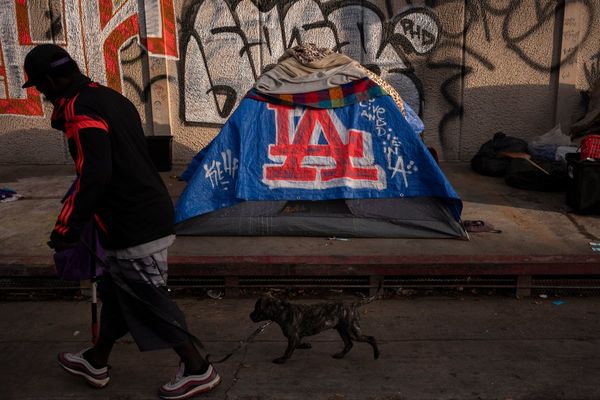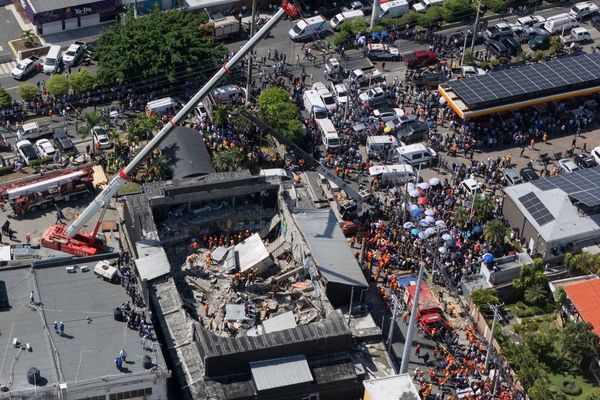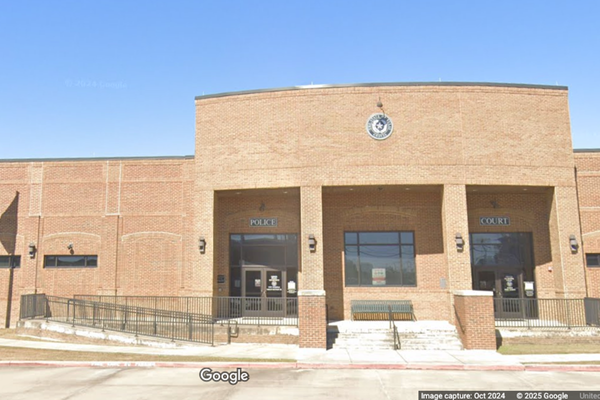
The palatial compound known as Albany is not your typical tropical paradise. The 600-acre property, located on the Bahamian island of New Providence, attracted the likes of Tiger Woods and Justin Timberlake for its grand opening in 2010, and homes sell for tens of millions of dollars. There is an 18-hole golf course designed by Ernie Els, a 71-slip mega yacht marina and eleven closed-to-the-public restaurants. Wealthy residents can gaze at a perfect replica of Arturo Di Modica’s "Charging Bull" statue and send their children to a boarding and day school spread across two campuses. Albany likes to call itself a “private community.”
Albany is the type of place where, if you show up to its front entrance in a taxi and ask if you can come in, the guard replies with a smirk and tells your driver, “You should know better.” It’s the type of place where if you station yourself a bit down the road to take some pictures of the sign, an unmarked car shows up within minutes to ask what you’re doing.
It’s also where Sam Bankman-Fried—a man who once told an interviewer, “I’m not that much of a consumer, exactly”—calls home. The disgraced head of FTX moved there in 2021 when Hong Kong became too hot to run an apparent international cryptocurrency casino. He lives in a $30 million penthouse in the compound’s seaside Orchid residence, where he and nine confidants ran a Bernie Madoff-like empire, living a pampered life where employees ordered toenail clippers on-demand.
I got a taste of Albany last week when I went to the Bahamas in a futile attempt to knock on Bankman-Fried's door. In the course of the trip, I came to learn of the rife hypocrisy and dark secrets that compose the crypto tycoon’s island world.
As one Bahamian financier told me, “In 1706, the Bahamas got designated as a pirate republic. Nothing has changed except for the design of the suits they wear.”


A friendly government, living large
In 2020, the global crypto market was heating up, and politicians in the Bahamas smelled an opportunity. That year, they passed laws to make the country attractive to crypto companies in the hopes of attracting a whale like FTX—a fast-growing company that billed itself as a white knight that would help crypto go mainstream. The plan worked.
FTX became a Bahamas entity in July 2021, known as FTX Digital, and formally moved to the country in September of that year—the same month that Philip “Brave” Davis became prime minister.
Allyson Maynard-Gibson, a former minister in Davis’s Progressive Liberal Party government, helped FTX become the first exchange to be registered under the Bahamas’s groundbreaking digital asset regulation, known as the DARE act. Her daughter would go on to serve as FTX’s director of corporate social responsibility.
The overlap between business and government in the Bahamas is byzantine—and that is by design. As a local power player told me, everyone has a conflict of interest with everyone, which results in most people not being willing to talk about anything.
And indeed, during my visit I felt like the stranger in a detective show who arrives in a cloistered small town where everyone is guarding a sinister secret. Even as FTX was the biggest business story in the world, locals clammed up. That included six white-shoe law firms—ordinarily attorneys love to gab, but in this case, I encountered a wall of silence. Only one said it was because they were involved in the case.
As the scope of FTX’s misdeeds have become clear, critics of the government have used press conferences to raise question about political contributions that coincided with the company’s arrival—allegations that political insiders repeated to me during my time in the Bahamas.
The details of these allegations—for now unproven—are still emerging. But for now, it is clear that Bankman-Fried and his cohort knew how to play the game.
Upon arriving in New Providence, and purchasing at least 19 properties worth $121 million and staking out the future territory for FTX’s kingdom, Bankman-Fried engaged in what he does best—preaching his gospel of effective altruism. As the FTX founder made clear to any media outlet that would listen, he renounced material trappings so he would be able to devote as much money as he could to philanthropy.
In the case of the Bahamas, this translated to Bankman-Fried donating $1.4 million worth of KN95 protective masks and Covid testing kits, according to the Nassau Guardian. He also paid for a free public gospel concert to spur relief effort following Hurricane Dorian. He even bought out a resort ballroom used for the state reception to honor Prince William and Kate Middleton on their official visit. As the director of corporate social responsibility, Zoe Gibson-Bowleg, the daughter of PLP politico Allyson Maynard-Gibson, orchestrated many of the donations.
In Sam Bankman-Fried, the ruling party “had a wonderful friend,” opposition leader Michael Pintard told me.


While the millions of dollars of FTX cash raining down no doubt pleased the Bahamian people, the funds also served an ulterior motive. As a local software developer described it to me, “It was the usual, buying favor.”
“They were able to get what they wanted a lot faster and built a lot of goodwill, which is why the government securities exchange commission and auditors held those guys up as the golden child,” he said. “That’s usually how it is when foreigners come in with a lot of money, throwing it around.”
Even after FTX's demise, members of the PLP ruling party seemed reticent to criticize the cash cow. In a speech to the House of Assembly on Nov. 16, Davis deflected any blame for the debacle. Working off a tip, I tracked him down to an event at the party headquarters, which turned out to be a funeral for a former member of parliament. After the service, I asked him about FTX as he was shaking hands with party members.
"Go read my speech," he told me.
Meanwhile, contrary to Bankman-Fried's self-constructed image as an ascetic monk, the FTX cash did not go simply to charity and currying favors. Much of it went to making life ever more lavish for the FTX founder and his employees.
A former Bahamian FTX employee, who worked in a compliance role, said FTX employees could request any groceries they wanted twice a week and frequently received comped meals. And there were parties at Albany, which "at some point I got tired of."
The level of spoilage was such that once, she recalled an FTX employee requesting a pair of toenail clippers over Slack, which was quickly delivered. “They spent too much money constantly,” she said.
Although FTX hired Bahamians, most worked in logistics, which meant traversing the island at the beck and call of SBF and his minions.
“They had people from the Bahamas because they had to,” the employee, who requested anonymity, told me. “They really worked hard, around the clock. I don’t even know what their off days looked like.”
FTX occupied its own bubble. Stefen Deleveaux, president and CEO of the Caribbean Blockchain Association, recalls that outside of the charity work, there wasn’t much interaction between FTX and the rest of the island.
“There wasn’t a lot of connection,” he told me over drinks. “It isn’t great, but you get used to it.”
I visited the FTX offices, in an office park on the west side of New Providence, far from downtown Nassau but just a 10-minute ride from Albany. The offices were deserted except for a handful of cars and two security guards, who sidled up to my taxi.
When I asked them if FTX was here, one of the guards lowered his sunglasses. “Used to be,” he replied curtly.

Cracks begin to show
In April, Bankman-Fried stood alongside the prime minister as they broke ground on a planned $60 million headquarters for FTX, which Davis boasted would create hundreds of jobs.
The next month, FTX hosted a four-day “Crypto Bahamas” conference at a luxury resort one notch below Albany, a property called Baha Mar along the white sand beaches of Cable Beach. FTX Ventures head Amy Wu described it as “Crypto Sun Valley,” where everyone from FTX investors Tom Brady and Gisele Bündchen to Bill Clinton and Tony Blair came to mingle among slot machines and talk about the future of money. Of course, the man of the moment, Sam Bankman-Fried, was ever-present in his humble uniform of tube socks and T-shirt.
When I visited in November, Baha Mar employees remembered it as a star-studded affair replete with drinking and spending. Most were shocked to learn that the $32 billion company had gone bankrupt.
“They really put a stain on our country,” said one.


Even though the collapse of FTX in November seemed rapid, the warnings signs were there. The $60 million headquarters, for one, was barely a Potemkin village. When I visited the site of the gaudy groundbreaking, the lone security guard present told me that no crew had showed up for months. Construction had never begun except for the Bahamian management company setting up an office (“We set up a toilet,” an employee of the company told me when I inquired.)
More telling, the Bahamian FTX employee said they were laid off in June, after only working for the company for six months. They said 20 other employees also lost their jobs. The employee asked if it was because of their performance, but FTX said it was just performing a company-wide exercise.
FTX told the employees not to share that they had been laid off.
“I do feel like, looking back on it, they didn’t want the market to know they were hurting like everybody else,” the employee said. “A few days later, they purchased BlockFi.”
As the Wall Street Journal reported, the struggling crypto lender BlockFi held hundreds of millions of dollars’ worth of FTX’s token as collateral for loans—meaning those tokens would have crashed at the time if FTX had not stepped in to prop up the smaller company.
Neither FTX nor Bankman-Fried responded to multiple requests for comment.

'Wealthy people do that all the time'
Davinia Bain, a Bahamian fintech entrepreneur, co-founded Crypto Isle in 2021 as a co-working space where local developers and entrepreneurs could get together. The Bahamas is one of the first countries in the world to launch its own central bank digital currency, the Sand Dollar, although most Bahamians don’t use it. Most crypto acolytes are scornful of a government-run solution, preferring the type of private solutions worked on by Crypto Isle denizens.
When I met with Bain, she described one of the great ironies of FTX’s arrival: Due to central bank restrictions, it’s nearly impossible for Bahamians to actually deposit money into crypto exchanges. FTX was never built with Bahamians in mind, she said, just the Bahamian regulatory environment.


The next evening—10 days after FTX’s implosion—Crypto Isle hosted its weekly happy hour. About a dozen Bahamian crypto enthusiasts turned up, along with a lead engineer from a prominent global exchange who happened to stumble past the space while staying in the Bahamas for a diving trip. It was a rainy evening, the type of night where Bahamians go straight home and don’t engage in extracurriculars, according to Crypto Isle’s community manager, who told me I was lucky that anyone showed up at all.
After a lively presentation on crypto risk management by a local bank employee (“When you take a snapshot of this year, I can see why this debacle happened,” he said), everyone mingled, chatting about the causes of FTX’s demise and clearly tickled by the presence of three journalists at their normally informal affair.
Despite the fact a $32 billion company located 10 miles away had just evaporated in an act of apparent and unprecedented fraud, most of the attendees appeared unfazed. Travis Miller, a tech consultant, expressed disappointment that it would set back the crypto industry, especially in the Bahamas. Still, he said that it was a familiar story.
People in the U.S. were transfixed by Bankman-Fried, the scraggly man who would beam into meetings with the world’s most powerful people with unkempt hair, playing League of Legends in the background and promising to forgo his wealth.
Miller admitted that the Bahamas had not seen someone like Bankman-Fried display that type of altruism, “which won a few hearts.”
“When someone comes in, guns blazing, it provides a lot of temporary hope,” he said.
Bankman-Fried's spectacular fall, however, was nothing out of the ordinary.
“All of this interest in our resources felt familiar,” he told me. “For us, wealthy people do that all the time.”

Miller’s friend, a software developer who spoke on the condition of anonymity, was more cynical. He had never placed much trust in the company or in Bankman-Fried's alleged thrift.
“Guys like that aren’t very trustworthy," he said. "You have to be hiding something."
A recent interview with Vox, where Bankman-Fried denounced “this dumb game we woke Westerners play where we say all the right shibboleths and so everyone likes this,” seemed to confirm the developer’s suspicions.
I asked Miller's friend if he was angry about the whole affair.
“People come here and do what they need to do,” he told me. “If they shit the bed, they shit the bed and leave. If they make their money, then they stay here for a while.
“It’s just another day in the Bahamas."







